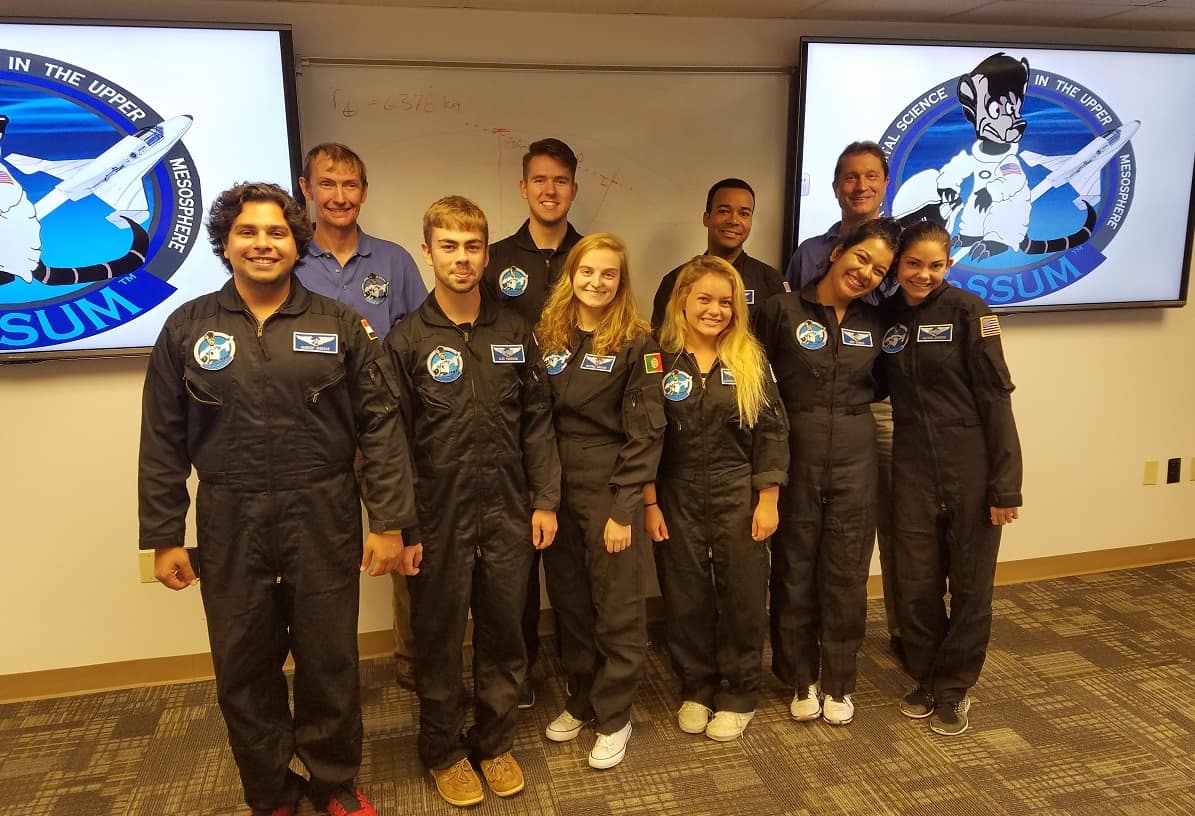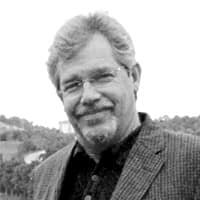Project PoSSUM Graduates First College Academy Class Plus Eight Scientist-Astronaut Candidates at Embry-Riddle

Eight Scientist-Astronaut Candidates also graduated as part of PoSSUM Scientist-Astronaut Class 1602. The program grew from a NASA-supported flight opportunity and candidates participate in an intense five-day training curriculum that covered atmospheric science, remote sensing, celestial mechanics, particle scattering, spaceflight physiology and PoSSUM instrument operations.
PoSSUM, an acronym for Polar Suborbital Science in the Upper Mesosphere, uses commercial suborbital spacecraft and high-altitude balloons to study rare “space clouds” called noctilucent clouds. These elusive clouds can help scientists address critical questions about Earth’s climate, but can only be studied in the upper atmosphere from polar latitudes during a small window of time in the summer.
All Project PoSSUM graduates receive an Embry-Riddle certificate with three continuing education units in Suborbital Mission Operations.
The Advanced PoSSUM Academy for Undergraduates
The Advanced PoSSUM Academy provides advanced high-school and college students an intense training curriculum that covers most of the science, operations, and engineering components of the PoSSUM Scientist-Astronaut program, including atmospheric science, remote sensing, celestial mechanics, particle scattering, mission simulation, spacesuit operations, spaceflight physiology and PoSSUM instrument operations. Graduates may qualify as PoSSUM Scientist-Astronaut Candidates upon graduation with a qualifying undergraduate degree.
The next Advanced PoSSUM Academy course will take place at Embry-Riddle from April 8-14, 2017. Interested high school and college students may apply online at www.projectpossum.org.
PoSSUM Scientist-Astronaut Candidates Prepare for Sub-orbital Spaceflight
The PoSSUM Scientist-Astronaut Program, designed by former NASA astronaut instructors and hosted by Embry-Riddle, gives its candidates the skills to effectively conduct research on commercial space vehicles as part of an international research campaign dedicated to the study of our global climate.
At the Daytona Beach Campus, students received comprehensive spacesuit training, mission simulation training, high-altitude and hypoxia awareness training and aerospace physiology training with world-champion aerobatic pilot Patty Wagstaff.
The eight graduating candidates of Scientist-Astronaut Class 1602 include Avishek Ghosh of Strasbourg, France; Rossana Fernandes of Daytona Beach, Florida; Karen Brun of Oscoda, Michigan; Pranit Patil of Panvel, India; Emerald Ainge of Boulder, Colorado; Hady Ghassabian Gilan of Verona, Italy; Dr. Diane Howard of Daytona Beach, Florida; and Alexander Horvath of Fairfax Station, Virginia.
“This class brought students together from Italy, Angola, India and the United States,” said PoSSUM Executive Director Dr. Jason Reimuller. “The diversity of this class demonstrates that global climate research and manned spaceflight are intrinsically international efforts.”
Twelve new candidates will be selected for PoSSUM Scientist-Astronaut Class 1701, which will take place at Embry-Riddle from April 8-14, 2017. Interested individuals should apply online at www.projectpossum.org.
Next up for all new PoSSUM graduates are opportunities to evaluate spacesuits on zero-G parabolic flights in Ottawa, Ontario next month as part of the PoSSUM Bioastronautics Program. Students will learn about microgravity research campaign planning and operations while they evaluate prototype spacesuits, spacecraft seat concepts, suit/seat interfaces and ingress and egress procedures. Additionally, graduates will participate in educational outreach programs and technology development programs in preparation for suborbital research missions.
PROJECT PoSSUM CONTACT
Dr. Jason Reimuller, Project PoSSUM Executive Director; Office: (720) 352-3227; jason.reimuller@projectpossum.org
ABOUT PROJECT POSSUM
Project PoSSUM is a 501(c)(3) non-profit research and education organization that trains citizen-science astronautics to enable novel measurements of the most sensitive region of global climate while inspiring and educating the public on the critical roles this region plays in the overall understanding of our global climate through immersive educational programs. Project PoSSUM is administered by a team of scientists and much of the training takes place at Embry-Riddle Aeronautical University in Daytona Beach, Fla. To learn more about Project PoSSUM, visit www.projectpossum.org.
The PoSSUM Tomography Experiment is supported by NASA’s Flight Opportunities Program as the ‘Noctilucent Cloud Imagery and Tomography Experiment‘, granted in March 2012. PoSSUM students train to fly this suborbital mission. The PoSSUM Imagery Experiment is funded by NASA as the ‘PMC-Turbo’ experiment. PoSSUM members travel to Antarctica in 2017 to launch this balloon experiment.

 James Roddey
James Roddey